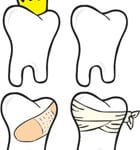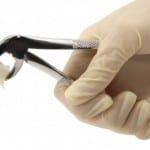 If you have ever suffered from a tooth abscess in the city of Leeds, you will know just how painful they can be, but did you also realise how dangerous they can be as well? The direct cause of an abscess is tooth decay or damage; where the tooth has become infected inside, it can spread into the roots and then to the jaw bone. During this time, there are certain symptoms that can indicate the onset of a abscess- you will start to suffer from toothache and possibly bad breath, you may even start to feel ill and get a fever, but it is well your cheeks or neck glands swell you know you have problems. Once you have got an abscess, it may disappear if the pulp inside the tooth dies, but it isn’t the end of it and it will return. First, you will need antibiotics in order to clear the abscess before the tooth can be treated with a root canal in order to save the tooth but this can often be just staving off the inevitable for if the abscess re-offends, it could means you have to lose the tooth altogether. You can simmer the pain with warm salty water after brushing or by taking painkillers but an abscess does come with a health warning- because it is surrounded by tissue, the pus can leak poison into the bloodstream and in some cases, this has induced comas and then your very life can be at stake.
If you have ever suffered from a tooth abscess in the city of Leeds, you will know just how painful they can be, but did you also realise how dangerous they can be as well? The direct cause of an abscess is tooth decay or damage; where the tooth has become infected inside, it can spread into the roots and then to the jaw bone. During this time, there are certain symptoms that can indicate the onset of a abscess- you will start to suffer from toothache and possibly bad breath, you may even start to feel ill and get a fever, but it is well your cheeks or neck glands swell you know you have problems. Once you have got an abscess, it may disappear if the pulp inside the tooth dies, but it isn’t the end of it and it will return. First, you will need antibiotics in order to clear the abscess before the tooth can be treated with a root canal in order to save the tooth but this can often be just staving off the inevitable for if the abscess re-offends, it could means you have to lose the tooth altogether. You can simmer the pain with warm salty water after brushing or by taking painkillers but an abscess does come with a health warning- because it is surrounded by tissue, the pus can leak poison into the bloodstream and in some cases, this has induced comas and then your very life can be at stake.
















